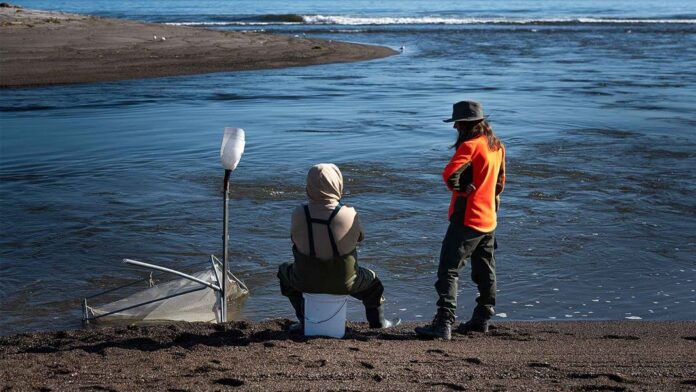Source: Department of Conservation
Date: 06 August 2021 Source: The Office of the Minister of Conservation
“The new regulations herald a more equitable fishery, easing the pressure on whitebait species while providing better alignment and consistency of fishing rules across the country,” Conservation Minister Kiri Allan says.
“Whitebait are taonga, mahinga kai for Māori and a valuable part of Aotearoa New Zealand’s indigenous biodiversity. Once plentiful, four of the six species we have are now threatened or at risk of extinction.
“No one wants to see whitebait disappear; they are part and parcel of our food heritage, with at least one annual festival celebrating the treasured delicacies,” Kiri Allan said.
The new regulations, announced in June, follow two years of public engagement and will be rolled out over three whitebaiting seasons, making it easier for whitebaiters to adjust.
“While they are an important step towards a sustainable fishery, where whitebait survive and thrive, they are only part of the process to ensure the future of whitebait species.
“During this season, DOC will gather more evidence about the state of the fishery, including further monitoring and scientific assessment, with the aim to continue improving whitebait management over the long term.
“Better information is essential to identify any need for further changes to the programme or regulations, and ensure whitebait management continues to be effective.
“DOC will also continue to focus on addressing other significant pressures such as habitat loss, environmental degradation, impeded fish passage within river systems, loss of spawning sites and introduced fish species.
“We all have a role to play in making sure whitebait don’t become just a memory to hand down to the next generation,” Kiri Allan said.
The season opens on 15 August, with the exception of the West Coast, where it opens on 1 September.
Regulations taking effect in 2021
Upstream limits for whitebaiting
- Upstream limits to fishing apply to all Aotearoa New Zealand. Whitebait fishing is only allowed where water levels are affected by the tide. Back pegs will mark this point in some rivers.
New refuges
- New refuges are within and near Abel Tasman and southern Fiordland National Parks, to supplement those already in place on the West Coast. Refuges are areas where fishing for whitebait is prohibited.
- We chose sites beside national parks because they have high-quality adult fish habitats. Healthy sites can support more whitebait.
Fishing methods
- Screens are the only lawful diversion device and are limited to 3 m maximum length, except when used from stands.
- Minimum distance of 20 m between fixed fishing gear, except when used from stands.
- Only one fishing net can be used from a stand.
- Maximum length of all fishing gear cannot exceed a quarter of a channel’s width.
- Fixed fishing gear is gear set on the riverbed to catch fish, except when used from stands. Fixed fishing gear doesn’t need a person to hold it or actively move it to catch fish.
Regulations taking effect from 2022
- A nationally consistent shortened whitebait fishing season from 1 September to 30 October.
- The whitebait season currently extends over three different time periods around New Zealand. The nationally standardised shorter season will reduce fishing pressure on the most threatened species of whitebait during their peak migration period.
- The Chatham Islands will retain their separate fishing season.
Regulations taking effect from 2023
- Including the West Coast into the maximum overall length limit for fishing gear of 6 m nationwide. This includes from stands.
Contact
For media enquiries contact:
Email: media@doc.govt.nz



